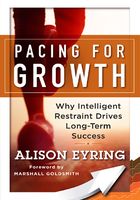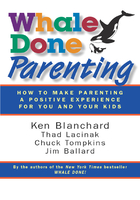How Contractors and Contracting Officers Can Profit from the New Ethics Rules was my preferred title for this book. Obviously, my editors did not agree.
Make no mistake, however: Both contractors and contracting officers can benefit immensely from aggressively adopting and carrying out codes of business ethics, establishing internal control systems, and conducting training programs encouraged by recent changes in the Federal Acquisition Regulation (FAR), see Appendix A (2007 changes, 72 FR 65873) and Appendix B (2008 changes, 73 FR 67064).
One important way that both can profit from vigorous ethics compliance is through the increase in trust engendered by a contractor aggressively championing ethics. At the risk of generalizing, my experience has been that there are often bad feelings between contracting officers and contractors.
This has been true for centuries. In the 19th century, Calendar Irving, the person in charge of government contracting for the War of 1812, stated that "contractors are all crooked and greedy, paying low wages to produce inferior goods and increase profits at the public's expense." In the 20th century, Harry Truman said "I have never yet found a contractor who, if not watched, would not leave the government holding the bag." And in the 21st century, a retired contracting officer who went to work for a contractor left contracting completely because "contracting officers consider contractors crooks who have not yet been indicted."[1]
Let's not debate whether these incendiary quotes are accurate or are stereotypes. Instead, let's look at the flipside, "the good contractor." I base my ideas on the more than 24 years I have spent teaching government contract law to contract specialists and contracting officers. In my classes, when discussing whether a contracting officer is willing to give the contractor the benefit of the doubt in calculating an equitable adjustment, I often hear, "Well, if they're a good contractor.…" Once I hear that, I know where the contracting officer is going. Just as a teacher is willing to give a proven good student a break, a contracting officer is much more willing to be fair to a proven "good" contractor.
Being a good contractor provides important advantages in today's competitive government contract marketplace. Regardless of whether you believe that contractors and contracting officers generally do not trust each other, the new ethics rules give both sides a chance to improve a relationship that all would agree can benefit from improvement.
I view the new ethics rules as an opportunity for contracting officers and contractors to develop a relationship built on trust—a chance for contractors to demonstrate that they are good contractors and to be regarded as such. But this increase in trust between contractors and contracting officers is not the only result I anticipate from contractors aggressively championing the new ethics rules. I also see dollar signs.
Some interesting research shows that there's profit in ethics compliance. A Deloitte website notes:
Companies that are explicit about their business ethics in their annual reports outperform (in financial and other indicators) those companies that don't have a code of ethics. Other studies reveal a robust relationship between a company's ethical climate and employee job satisfaction.… those with low job satisfaction and little company commitment are more likely to be latent, absent or resign.[2]
Finally, in addition to increasing trust and profits, a contractor that aggressively champions ethics can benefit in other ways. When acting as a subcontractor, that contractor will be easier for the prime contractor to work with because the contractor-turned-subcontractor has already adopted whatever flow-down provisions the prime must impose on a subcontractor. Moreover, when submitting offers for future contracts, a contractor able to brag about its "Cadillac" ethics compliance program may have an advantage.
To me, it all boils down to: How much effort should a vendor put into complying with the new rules? I look at the "effort" issue as giving contractors two alternatives:
Do only what the FAR requires — do the "shall" but not the "should"
Go beyond the "shall" and do the "should"
I advocate contractors aggressively championing ethics compliance. I advise my clients that they should pick alternative 2, go beyond the "shall" and do the "should."
My recommendation especially applies to the "should" requirements of an internal control system. Not all contractors are required to have an internal control system. As we will see, small businesses are not required to adopt an internal control system. But there is an advantage to a small business that voluntarily adopts one: if the small business should be convicted of a felony or Class A misdemeanor, whether or not the crime arises from a procurement situation, the small business will have complied with the guidelines issued by the U.S. Sentencing Commission and accordingly would be treated more leniently because it had adopted an internal control system.
For the more than 35 years I have been a lawyer in government contracts, I have seen time and again the truth of the statement, "It is cheaper to stay out of trouble than to get out of trouble." It takes little additional effort on a contractor's part to adopt an aggressive ethics compliance program. But let's be clear about this: Passive compliance is probably enough to get by. The regulations do not require that a contractor submit its code of business ethics, internal control system, or training program to the government for approval. As long as a company has no ethical problems in its government contracts, the government will not get too involved in the fine points:
The contracting officer is not required to verify compliance, but may inquire at his or her discretion as part of contract administrative duties.… The Government will not be routinely reviewing plans unless a problem arises. The Government does not need the code of ethics as a deliverable. 72 FR 65878, Appendix A.
On the other hand, what I am arguing for is what I call "110 percent compliance." To me, it means aggressively teaching, advocating, and enforcing ethics, personal integrity, and company values.
One example might show the difference in approach. Clearly, every company appoints someone to be an ethics or integrity czar. Passive compliance means that a currently overloaded employee gets ethics added to his or her duties. In contrast, with "110 percent compliance," the company makes serving as the "integrity czar" the sole function of one person.
Admittedly, in many small companies, this would be cost-prohibitive. But let's look at another example: training.
A company that does ethics training one time for all employees, except for new hires, is passively compliant. On the other hand, a company that does quarterly ethics training or refreshers is demonstrating "110 percent compliance." Throughout this book, I advocate that contractors take the most aggressive approach possible. Clearly, this is the best way to stay out of trouble.
The book is organized in four parts.
Part I presents the new ethics requirements, focusing on the duty contractors have to disclose to the government certain law violations associated with their government contracts, the components of a contractor's ethics program (Chapter 1) and the applicability of those requirements for different types and sizes of contracts (Chapter 2).
Part II focuses on the FAR rules that procurement personnel, contract specialists, and contractor employees must observe in the contract solicitation process (Chapter 3) and the contract administration process (Chapter 4).
But those involved in the procurement process must comply with more than the FAR. Contractor employees and contract specialists/contracting officers involved in the procurement process must also observe a wide range of federal laws and regulations other than the FAR, including statutes like the False Statements Act that are imposed on personnel regardless of their involvement in the procurement process.
Part III discusses the federal statutes and regulations that all government employees and contractor personnel must comply with, such as rules against bribery. Chapter 5 focuses on federal employee conduct, and Chapter 6 focuses on federal contractor conduct. These two chapters are especially important because they describe the four federal criminal statutes (conflict of interest, bribery, gratuities, criminal False Claims Act) and the civil False Claims Act to which the self disclosure FAR requirements adopted in late 2008 apply. In addition, Chapter 6 includes a discussion of the 2009 amendments to the False Claims Act.
Part IV, Preventing and Uncovering Fraud, should be at the heart of any ethics training program, whether for contractors or government personnel. Chapter 7 discusses indicators of fraud and contains a wealth of information on what procurement personnel should be on the lookout for in their fraud prevention efforts.
Throughout, I have included relevant cases that have been decided by the Government Accountability Office and the courts. In some areas, no cases have been decided within the past 10 years. Some topics and ethics simply do not get litigated often. Regardless, the existing case law remains relevant and important.
Terry O'Connor
Alexandria, Virginia
NOTES
[1]. National Contract Management Association, "Speaking Out," Contract Management, January 2008, 12.
[2]. (accessed May 2008).















